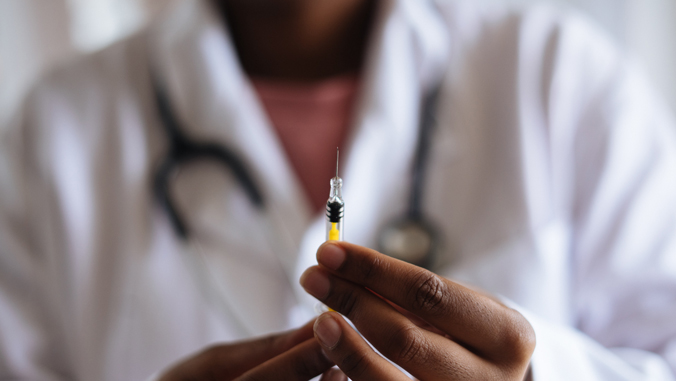
While 54% of respondents in Hawaiʻi expect the COVID-19 pandemic to become worse in the next several months, only 44% plan to get a vaccine when it becomes available. That’s according to a new University of Hawaiʻi at Mānoa Public Policy Center report, based on a post-election November 2020 survey, which featured 616 respondents statewide.
The report revealed that 37% are still unsure if they will get the vaccine and the number of residents who said they will definitely get the vaccine has declined by 7% since the center’s August 2020 survey. Men were more likely to say that they would definitely get the vaccine (54%) compared to women (34%); 56% of households with incomes over $150,000 said they will get a vaccine, while 28% of Hawaiʻi’s poorest households plan to receive one; and Republicans were more likely to report that they will not get the vaccine (26%) than Democrats (7%).
“It’s interesting that it’s actually declined since we asked the same question in August and I wasn’t expecting to see that,” said Colin Moore, Public Policy Center director and associate professor. “I suspect some of this has to do with a general sense of uncertainty in their confidence in the government right now.”
Moore added, “This survey went into the field right after the presidential election and that’s my guess is that the decline in the number of people willing to take the vaccine—and a relatively low number to begin with, 44%, lower than I would have expected—I think that really is a response to a lack of trust in the regulatory process right now that it will be safe. I really hope those numbers improve over the next few months.”
COVID-19 financial effects
A majority of respondents (60%) agree that the pandemic has impacted the poor more than other groups and 47% said they feel it has increased inequality in the state. Fifty-four percent reported that they have a high level of concern with personal finances, and want to learn more about how people are adapting to economic pressures related to COVID-19, 17% have considered returning to school for training and education.
“A pretty sizable percentage of people seem like they have thought about returning to school for training,” Moore said. “Seventeen percent is pretty big since this was a general population survey—not necessarily young people—so clearly this has caused a lot of people to think seriously about coming back to school.”
Mask-wearing compliance
Gov. David Ige issued a statewide mask mandate on November 16 requiring everyone to wear a face covering over the nose and mouth while in public. Some exceptions include when an individual is outdoors and at least six feet of physical distancing is maintained, and while eating or drinking.
While a high majority of respondents reported wearing a face mask all or most of the time while outside in a public space (81%) and when visiting a store or business (98%), numbers dropped when reporting wearing masks almost always when visiting friends (57%) and almost always wearing masks when visiting family (43%).
Views on tourism relaunch
After the state launched its COVID-19 pre-travel testing program on October 15, a majority (62%) of survey respondents indicated that they do not want tourists coming to visit right now. However, the percentage has dropped by 20 points since the Public Policy Center’s June and August 2020 surveys.
Moore noted that some of this appears to be driven by a lack of trust in the state and travel industry. Results showed that a majority of residents (54%) do not trust either the state or travel industry to re-open tourism in a way that gives Hawaiʻi residents the best practical level of safety from the coronavirus.
Target audience
The survey results are intended to assist policymakers by informing how well they are communicating with the public, addressing the issues residents are most concerned with and perceptions of their overall performance.
“That’s really our goal is to be a link between what average people are worried about and how they think the state is performing and to link that to policymakers to make their voices heard,” Moore said.
View the entire report on the Public Policy Center’s website. The Public Policy Center is housed in UH Mānoa’s College of Social Sciences.

